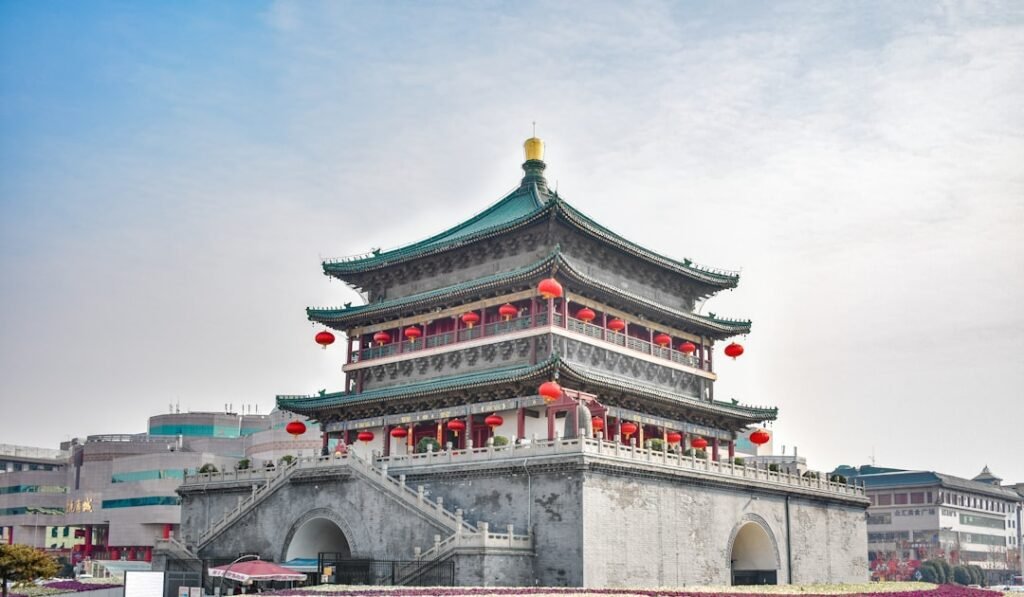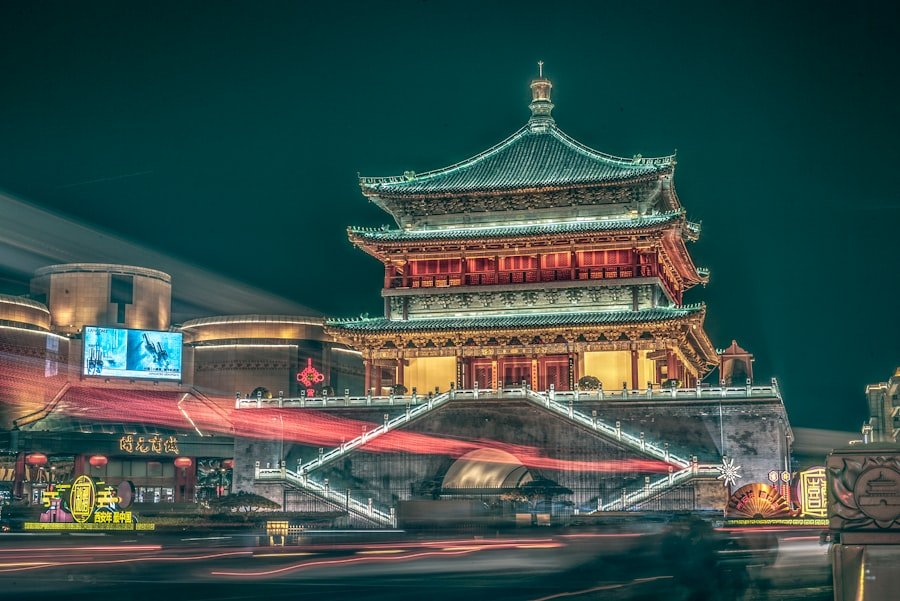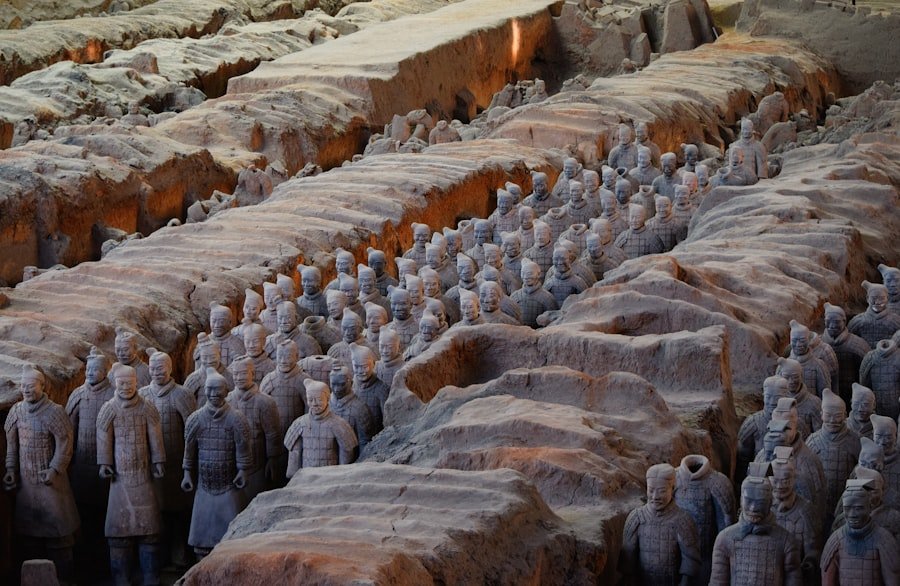

How to Say “Happy Birthday” and Celebrate in Chinese Style
In China, birthdays are not merely a personal milestone; they are steeped in cultural significance and reflect deep-rooted traditions that have evolved over centuries. The celebration of birthdays is often viewed as a time to honour one’s life journey, express gratitude for the blessings received, and seek good fortune for the year ahead. Unlike in many Western cultures, where individualism is celebrated, Chinese birthday customs often emphasise family and community, highlighting the importance of relationships and collective well-being.
The significance of birthdays can also be traced back to ancient beliefs surrounding longevity and prosperity. In traditional Chinese culture, reaching certain ages is considered particularly auspicious. For instance, turning one year old is celebrated with great fanfare, as it marks the end of infancy and the beginning of a new life phase.
Similarly, milestones such as the 60th birthday are celebrated with elaborate festivities, as they signify a full cycle of the Chinese zodiac. This cultural reverence for age and wisdom underscores the importance of birthdays in fostering familial bonds and honouring one’s heritage. Start learning Chinese at the NLS Norwegian Language School in Oslo now!
Table of Contents
ToggleSummary
- Birthdays in China are seen as a time to honour and show respect to elders, with a focus on family and community.
- The proper way to say “Happy Birthday” in Chinese is “生日快乐” (shēngrì kuàilè), and it’s important to use the correct tone and pronunciation.
- Traditional Chinese birthday customs include eating longevity noodles, giving red packets with money, and lighting long birthday candles.
- When giving gifts in Chinese culture, it’s important to choose items that symbolise good luck and prosperity, and to give money in even amounts.
- Planning a Chinese-style birthday party involves incorporating traditional customs, such as wearing red and serving symbolic foods like longevity buns and peach-shaped buns.
Learning the Proper Way to Say “Happy Birthday” in Chinese
To convey birthday wishes in Chinese, one must learn the phrase “生日快乐” (shēngrì kuàilè), which translates directly to “Happy Birthday.” This simple yet heartfelt expression encapsulates the joy and warmth associated with birthday celebrations in Chinese culture. Pronunciation is key; mastering the tonal nuances of Mandarin can significantly enhance the authenticity of your greeting. The first syllable “shēng” has a rising tone, while “rì” is pronounced with a falling tone, and “kuàilè” has a falling-rising tone.
In addition to the standard greeting, there are other phrases that can be used to convey more personalised wishes. For example, one might say “祝你长命百岁” (zhù nǐ chángmìng bǎisuì), which means “Wishing you a long life of a hundred years.” This phrase reflects the cultural emphasis on longevity and well-being, making it a thoughtful addition to any birthday message. Understanding these expressions not only enriches your language skills but also deepens your appreciation for the cultural context behind them.
Traditional Chinese Birthday Customs and Celebrations

Traditional Chinese birthday celebrations are rich with customs that vary across regions and families. One common practice is the preparation of longevity noodles, known as “长寿面” (chángshòu miàn). These long noodles symbolise a wish for a long life and are typically served uncut to preserve their length.
The act of consuming these noodles is often accompanied by family members offering their blessings, creating a warm atmosphere filled with love and support. Another significant custom involves the use of symbolic foods such as eggs, which represent fertility and new beginnings. In some regions, it is customary to dye eggs red to signify good luck and happiness.
These eggs may be presented as gifts or served during the birthday meal, further enhancing the celebratory spirit. Additionally, many families choose to host gatherings that include games and activities designed to foster togetherness and joy, reinforcing the communal aspect of birthday celebrations.
Giving Gifts and Red Packets for Birthdays in Chinese Culture
Gift-giving is an integral part of birthday celebrations in Chinese culture, with particular emphasis placed on the symbolism behind the gifts. It is customary to present gifts that convey good wishes, such as items associated with health, wealth, or happiness. Common gifts include fruits like oranges or apples, which symbolise prosperity and peace respectively.
However, it is essential to avoid giving gifts that may carry negative connotations, such as clocks or umbrellas, as these items are often associated with funerals. In addition to traditional gifts, red packets or “红包” (hóngbāo) play a significant role in birthday celebrations. These red envelopes typically contain money and are given by elders or family members to younger relatives as a gesture of good luck and blessings for the year ahead.
The colour red is considered auspicious in Chinese culture, symbolising happiness and good fortune. The act of giving and receiving red packets reinforces familial bonds and serves as a reminder of the importance of community support during significant life events.
Planning a Chinese-Style Birthday Party
When planning a Chinese-style birthday party, it is essential to incorporate elements that reflect traditional customs while also catering to modern tastes. A well-thought-out guest list should include close family members and friends, as their presence is vital for creating a warm and celebratory atmosphere. Invitations can be designed with traditional motifs such as dragons or lanterns to set the tone for the event.
The menu plays a crucial role in any birthday celebration. Traditional dishes such as dumplings, spring rolls, and longevity noodles should be featured prominently. Additionally, incorporating a cake decorated with auspicious symbols can add a modern twist while still honouring tradition.
Activities such as games or performances can also be included to engage guests and create lasting memories. Ultimately, a successful Chinese-style birthday party should balance tradition with personal touches that reflect the celebrant’s unique personality.
Traditional Chinese Birthday Foods and Drinks

Food holds immense significance in Chinese culture, particularly during birthday celebrations where specific dishes are believed to bring good fortune. As previously mentioned, longevity noodles are a staple at birthday feasts due to their symbolic representation of long life. These noodles are often stir-fried or served in broth alongside an array of vegetables and meats, creating a deliciously satisfying dish that embodies both flavour and meaning.
In addition to longevity noodles, other traditional foods include steamed buns filled with sweet red bean paste or savoury pork, known as “包子” (bāozi). These buns are often shaped into auspicious symbols like fish or peaches to further enhance their significance. When it comes to beverages, tea is typically served during birthday meals as it represents purity and harmony.
Some families may also opt for sweet rice wine or fruit juices to complement the celebratory atmosphere.
Birthday Superstitions and Taboos in Chinese Culture
Chinese culture is rich with superstitions and taboos that influence various aspects of life, including birthday celebrations. One prevalent belief is that one should avoid celebrating birthdays on certain days deemed inauspicious according to the lunar calendar. For instance, some individuals may refrain from celebrating their birthdays during the Ghost Month when spirits are believed to roam freely.
Additionally, there are specific taboos surrounding gift-giving during birthdays. For example, gifting items in sets of four is considered unlucky due to the association of the number four with death (“死” pronounced as “sǐ”). Similarly, presenting gifts that are black or white can be seen as inappropriate as these colours are traditionally associated with mourning.
Being mindful of these superstitions can help ensure that birthday celebrations remain joyous and free from negative connotations.
How to Write a Birthday Card or Message in Chinese
Writing a birthday card or message in Chinese requires an understanding of both language and cultural nuances. A simple yet heartfelt message can begin with “亲爱的” (qīn’ài de), meaning “Dear,” followed by the recipient’s name. This personal touch sets a warm tone for your wishes.
Following this greeting, you can express your sentiments by saying “祝你生日快乐” (zhù nǐ shēngrì kuàilè) for “Wishing you a happy birthday.” To make your message more meaningful, consider adding personal anecdotes or well-wishes that reflect your relationship with the recipient. For instance, you might write “愿你在新的一岁里,健康快乐,心想事成” (yuàn nǐ zài xīn de yī suì lǐ, jiànkāng kuàilè, xīn xiǎng shì chéng), which translates to “May you be healthy and happy in this new year of your life, and may all your wishes come true.” Such thoughtful additions not only enhance your message but also demonstrate your genuine care for the recipient.
Incorporating Chinese Zodiac Signs into Birthday Celebrations
The Chinese zodiac plays a significant role in shaping cultural beliefs surrounding birthdays. Each year corresponds to one of twelve animals in the zodiac cycle—rat, ox, tiger, rabbit, dragon, snake, horse, goat, monkey, rooster, dog, and pig—each carrying its own set of characteristics and fortunes. When planning birthday celebrations, incorporating elements related to the celebrant’s zodiac sign can add an extra layer of meaning.
For instance, if someone was born in the Year of the Dragon, decorations featuring dragons or colours associated with this sign—such as gold or silver—can be used to enhance the celebratory atmosphere. Additionally, zodiac-themed games or activities can be incorporated into the party to engage guests while honouring traditional beliefs. Understanding how zodiac signs influence personality traits can also provide insight into crafting personalised gifts or messages that resonate deeply with the celebrant.
Modern Influences on Chinese Birthday Celebrations
As China continues to modernise and globalise, traditional birthday celebrations have begun to incorporate contemporary influences while still retaining their cultural essence. The rise of social media has transformed how birthdays are celebrated; many individuals now share their special day online through posts or live streams that showcase their festivities to friends and family around the world. Moreover, Western-style birthday parties featuring elaborate cakes adorned with candles have gained popularity among younger generations.
While these modern elements may seem at odds with traditional customs, they often coexist harmoniously within celebrations that honour both heritage and contemporary trends. This blending of old and new reflects the dynamic nature of Chinese culture as it adapts to changing times while preserving its core values.
Celebrating Birthdays in Chinese Communities Outside of China
Chinese communities around the world continue to uphold traditional birthday customs while also adapting them to their local contexts. In countries such as Malaysia or Singapore, where there is a significant Chinese population, birthday celebrations often blend local customs with traditional practices from China. This fusion creates unique festivities that reflect both cultural heritage and contemporary influences.
In diaspora communities, birthdays serve as an opportunity for individuals to connect with their roots while also embracing their new surroundings. Celebrations may include traditional foods alongside local delicacies or incorporate elements from both cultures into party themes. This blending not only enriches individual experiences but also fosters a sense of belonging within diverse communities.
As interest in learning about different cultures grows globally, institutions like NLS Norwegian Language School in Oslo offer courses that delve into various aspects of Chinese culture—including its rich traditions surrounding birthdays. By enrolling in these courses, individuals can gain deeper insights into not only language but also customs that shape social interactions within Chinese communities worldwide. Understanding these cultural nuances enhances appreciation for diversity while fostering meaningful connections across borders.
In conclusion, birthdays hold profound cultural significance within Chinese society—reflecting values of family unity, respect for tradition, and aspirations for prosperity. From learning how to express heartfelt wishes in Mandarin to understanding age-old customs surrounding food and gift-giving—each aspect contributes to creating memorable celebrations steeped in meaning. As modern influences continue shaping these traditions globally—particularly within diaspora communities—there remains an enduring appreciation for heritage that binds individuals together across generations and geographies alike.
Register for a Chinese class at the NLS Norwegian Language School now!
If you want to learn Norwegian, you can register for classes here. We look forward to hearing from you and helping you become fluent in Norwegian.





